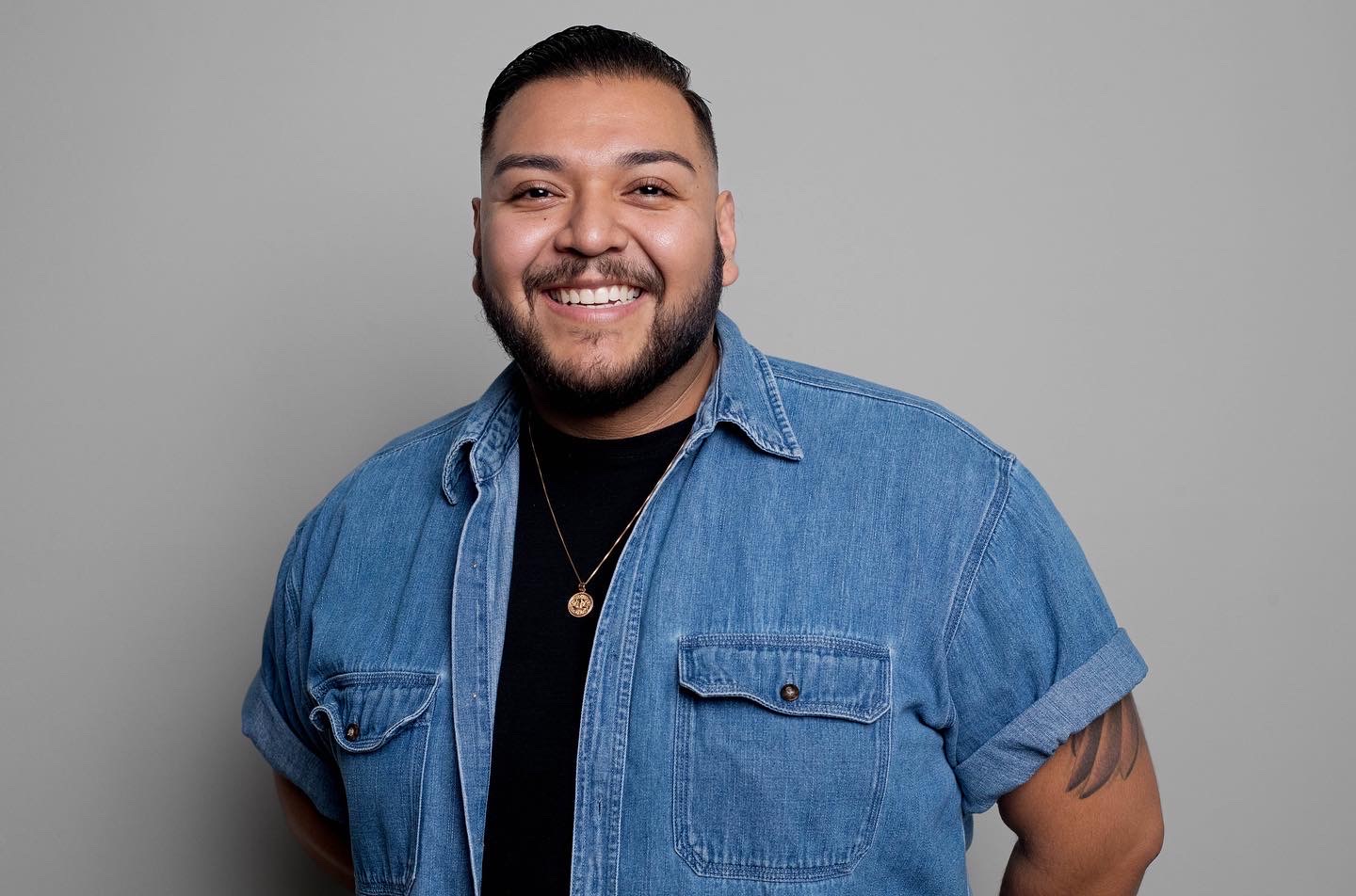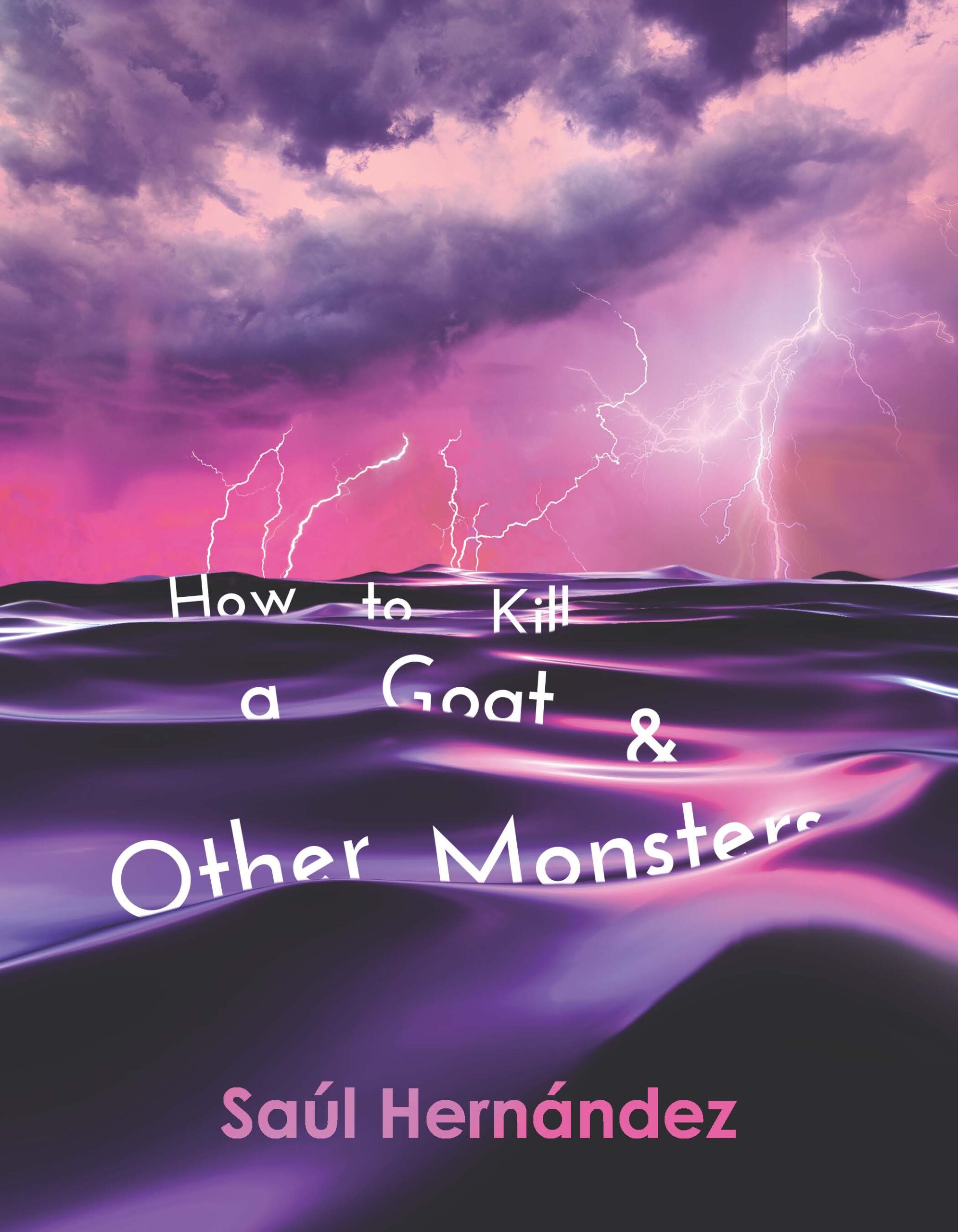IThere are stories about boys like me who become water in a bathtub. Sound underwater doesn’t travel.II Two truths & a lie:(1) The Aztec deity of water, Calchiuhtlicue, released fifty-two years of rain, drowned the fourth sun, created Earth, turned people into fish; (2) Water has memory; (3) Learning to swim will not help you save a life.III Apá drives my brother & I to Corpus Christi, Lo más importante no es saber nadar si no como flotar para que no te ahoges.At the beach, my brother is tall enough to stand in the water. Afraid of the current, I grab on to Apá’s waist, but Apá throws me in. I land near the bottom of the ocean, my body starfish like. He pulls me up from the sand, Qué te pasa, debes dejar ir el aire en tu cuerpo.IV Once upon a time in México, Apá & his brother stuffed their livesinto a knockoff JanSport backpack: birth certificates, identifications, pictures, a rosario, one pair of clean clothes,& a water bottle. Their last night in México, they bended their hands like waves, asked God for a safe crossing into America.They slept on the benches of the church. In the morning, they set off on a four-day journey up north toward Texas. They forgot to calculate how fast water evaporates, the strength of the Rio Grande running to the Gulf, how water swims on your skin,consumes your body. The river folded & folded & folded his brother’s body under itsthickness. Apá learned not all rivers are meant to be crossed.V At the Gulf of México, Apá dips his feet in & out of the water, Iwonder if he feels close to México, to his brother. If part of Chalchiuhtlicue’svengeance is toturn men into fish, is my Tío out there?VIAt the beach, a wave takes my brother in, Apá sinks his feet into the sand, calls out to my brother.A white man yanks my brother out. Apá tells my brother, Crees que sabes el camino de la agua, eh?The white man tells Apá, Why didn’t you do something? Apá freezes, ¿Qué dijo? —I tell him what the white man said, Apá buries his feet deeper into thesand, looks down. I thought all wetbacks knew how to swim, the white man laughs, turns to his friends, points at Apá, Look— a wetback who doesn’t know how to swim.VII I have dreams of diving into a pool, when I pick up my head I’m on the surface of the Gulf of México, I pull against currents, I hear the man calling Apá wetback, the closer I get to them the farther the waves push me. I go under. Water goes inside of me until I know the weight of it. I reach the bottom of the ocean where I call for my Tío until I become sea foam.
The Boy & the Story of Water
Feature Date
- June 23, 2024
Series
Selected By
Share This Poem
Print This Poem
“The Boy & the Story of Water” from HOW TO KILL A GOAT AND OTHER MONSTERS: by Saúl Hernández.
Published by University of Wisconsin Press on March 19, 2024.
Copyright © 2024 by Saúl Hernández.
Reprinted by permission of the University of Wisconsin Press.
© 2024 by the Board of Regents of the University of Wisconsin System.
All rights reserved.

Saúl Hernández is a queer writer from San Antonio, TX who was raised by undocumented parents. Saúl has an MFA in Creative Writing from The University of Texas at El Paso. Saúl’s debut poetry collection, How to Kill a Goat & Other Monsters, is out now (March 2024, University of Wisconsin Press). He’s the winner of both the 2022 Pleiades Prufer Poetry Prize judged by Joy Priest & the 2021 Two Sylvias Press Chapbook Prize judged by Victoria Chang. Saúl is a finalist for the 2024 Dartmouth Poet in Residence at The Frost Place. His poems have been nominated for a Pushcart Prize & Best of The Net. Saúl’s work is forthcoming/featured in The Slowdown, Literary Hub, Columbia Journal, Pleiades, Split This Rock & elsewhere. He’s a Macondista, a 2021 Tin House Alum, & a 2024 Lambda Fellow.

Madison, Wisconsin
University of Wisconsin
“Hernández wields surrealism as a weapon against displacement and alienation, or as he himself might say, ‘I learned how to kiss a man easy / when he held a gun to my neck.’ Through stark juxtapositions such as this, Hernández manages to honor the fact of his ancestry while bravely confronting the possibility of having been abandoned by ancestors. This is a brilliant debut.”
—Jericho Brown
“The mouth, tongue, and hand feature prominently in Hernández’s collection. Indeed, these compelling poems kiss and bite, tell startling secrets and whisper with affection. They sometimes caress and sometimes strike. What he so eloquently calls ‘the language of grief’ pulses at the body’s intersection of language and desire, ethnicity and sexuality, vulnerable youth and empowered adulthood. What a stunning debut.”
—Rigoberto González
Poetry Daily Depends on You
With your support, we make reading the best contemporary poetry a treasured daily experience. Consider a contribution today.



